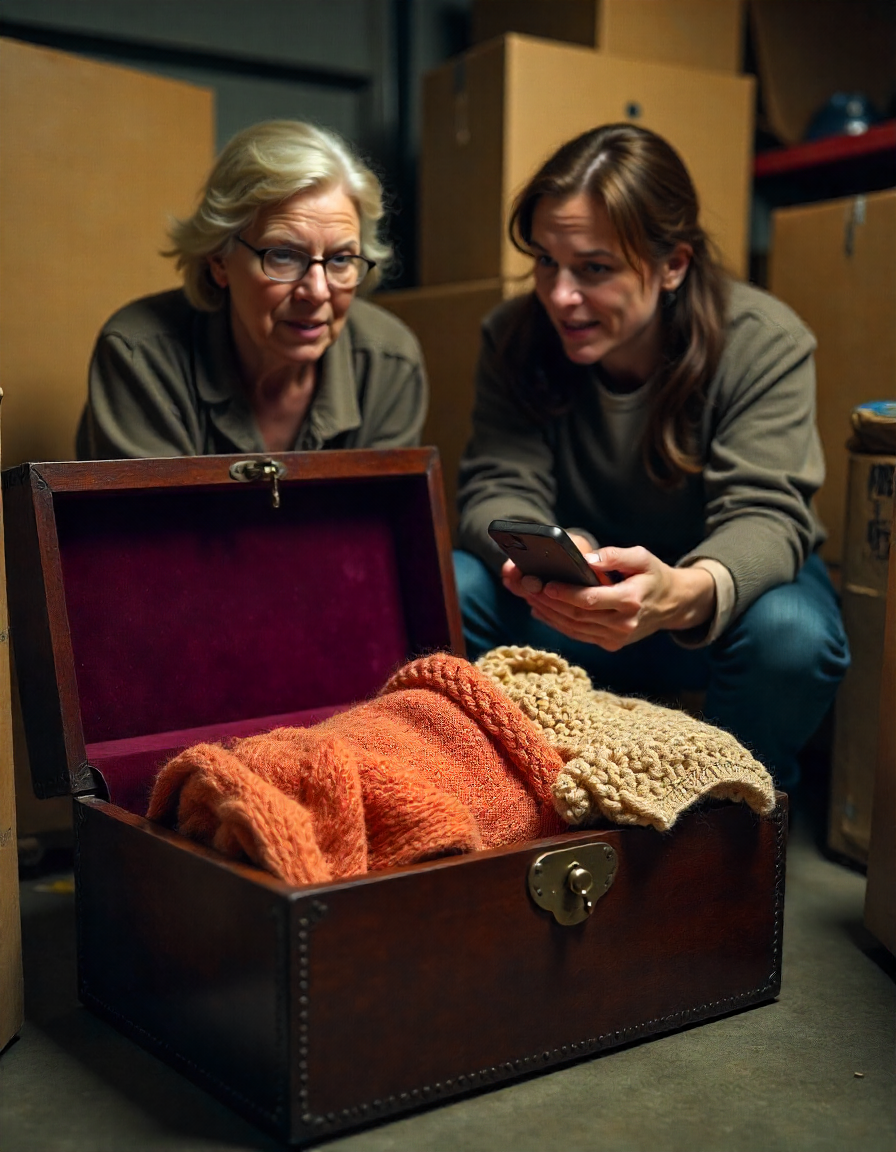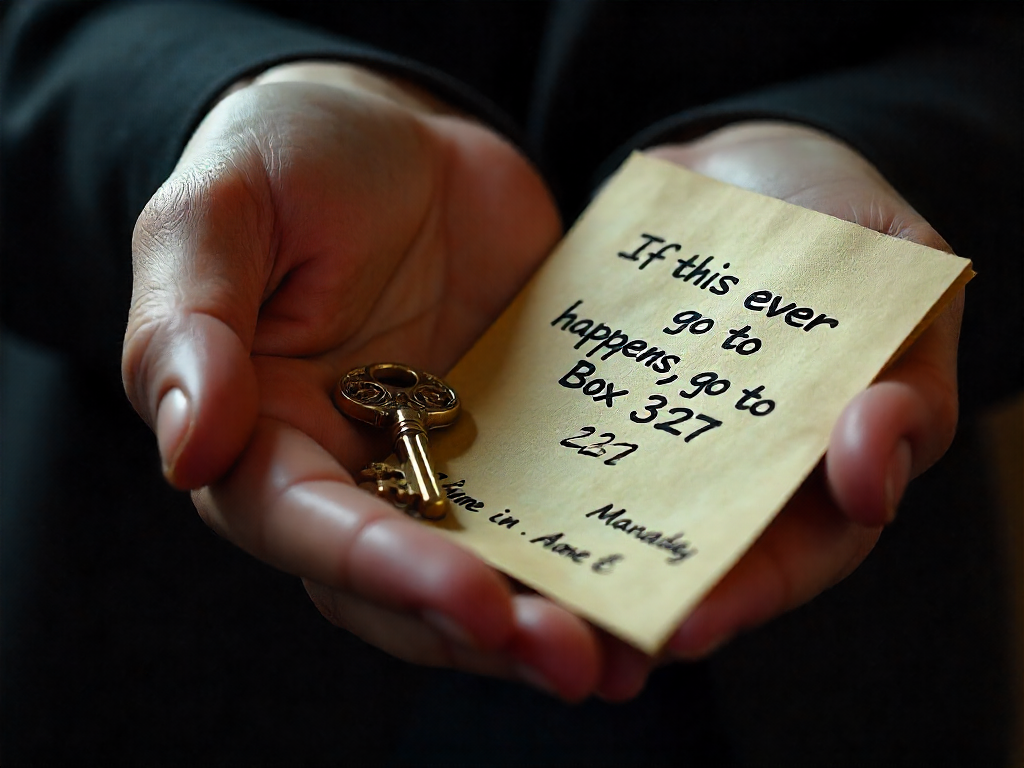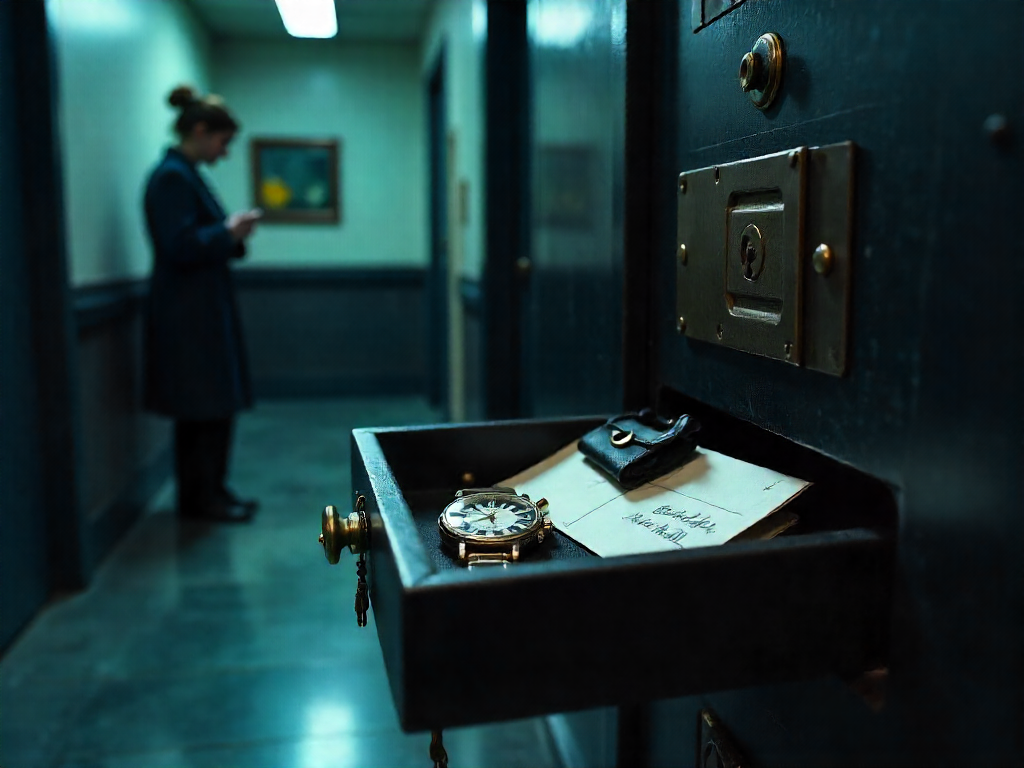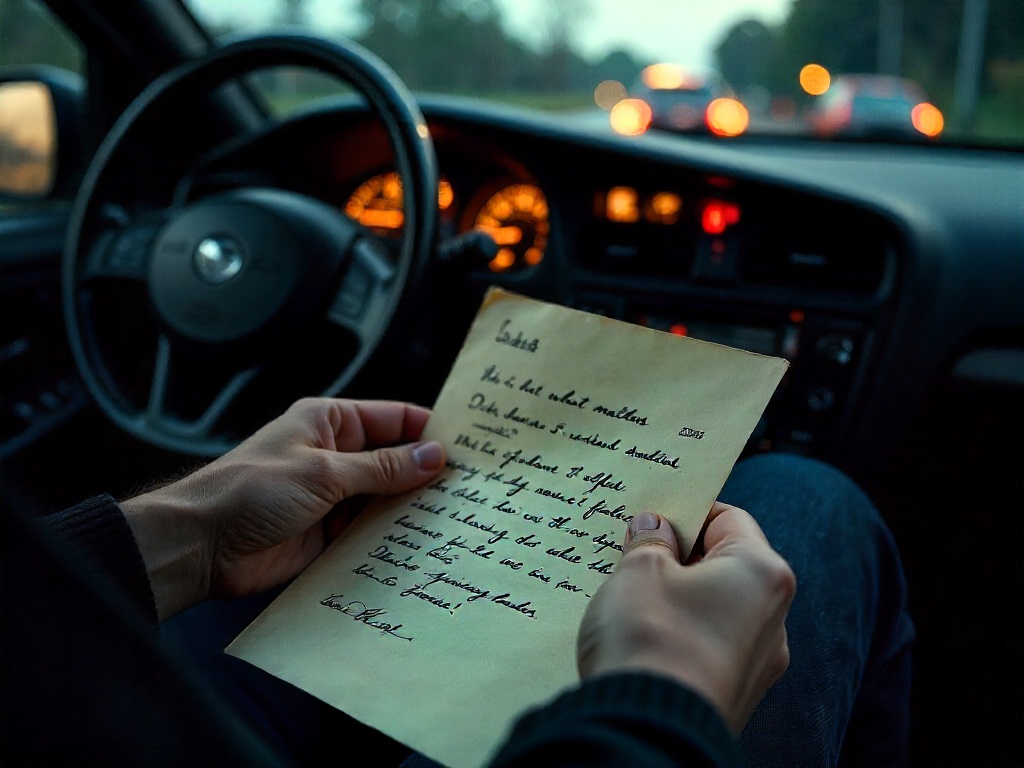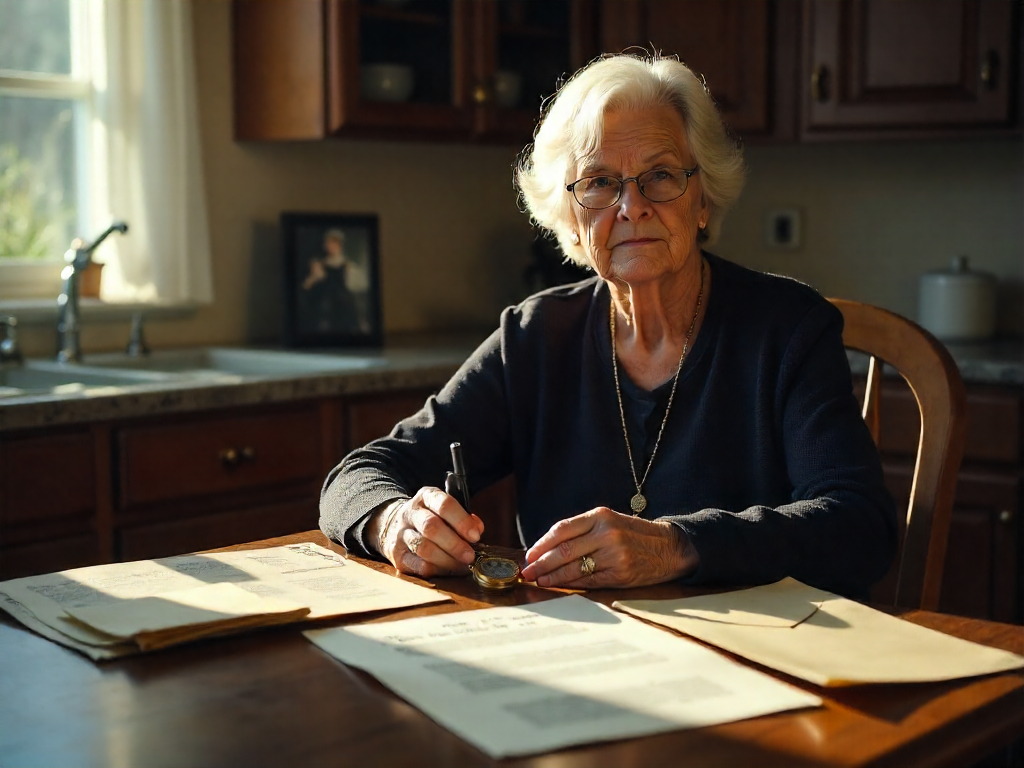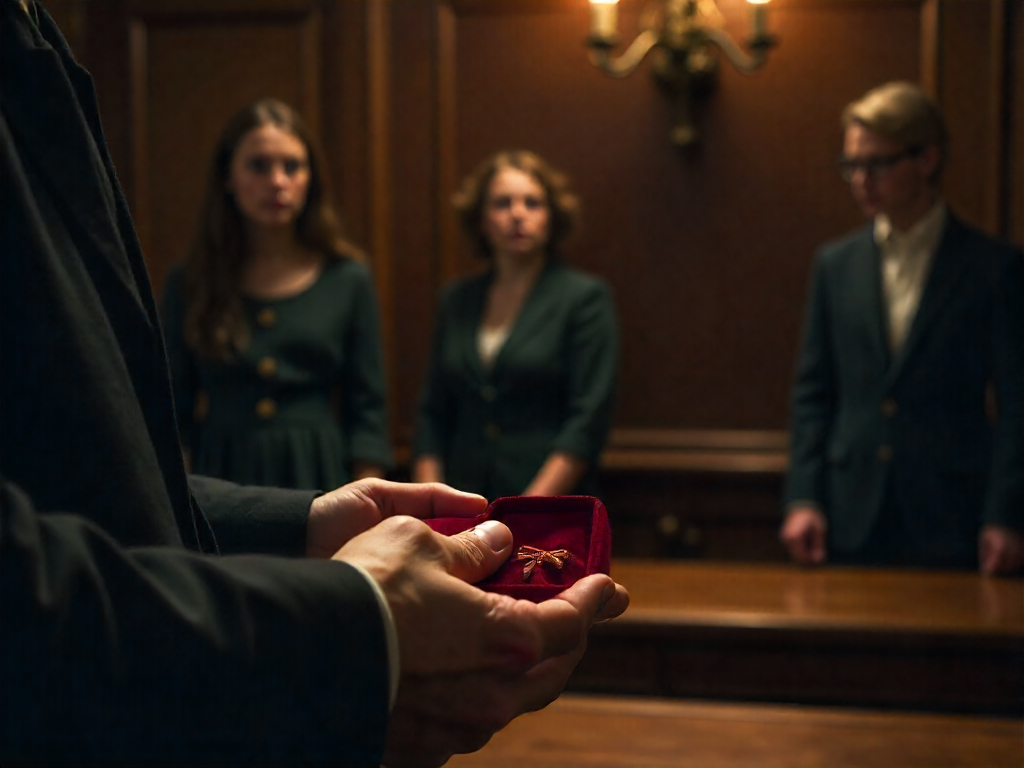A slim brass key and a folded note, my husband’s handwriting looping across the top: “If this ever happens, go to Box 327 at Firstbridge Bank.” He’d added a time and the manager’s initials. My hands shook, but the feeling that slid into me was not pure panic. It was steadier, like a map unfolding.
I dressed quickly, tucked the key into my purse, and drove to the bank. The branch smelled of coffee and paper; a woman at the desk murmured and led me through a narrow corridor. The vault was cool, the lock old-fashioned, the key fitting with a reluctant click. Inside the box lay the watch face-down, my mother’s locket wrapped in tissue, and a sealed envelope addressed to me.
I sat in the car and unfolded the letter. His voice was there in the loops: small jokes, practical instructions for college accounts, and a plea. “Protect what matters,” he wrote. He included a lawyer’s number and a line that felt like a promise: “Trust no one who tidies for convenience.”
That night I dialed the lawyer. By morning we had filings ready; a petition to enforce my rights, and a request to restore unsupervised visits. More than paperwork, something inside me had shifted. If they’d expected a quiet old woman, they’d guessed wrong. I would be careful, but I would also be relentless. First the locket, then the watch, and then my granddaughter. For our history, for respect, for the small life my husband and I built.
I would call his mother, confront the cousins, take the court room if I had to, and do whatever it took to bring her back into my arms. The velvet box on my lap felt warm, a tiny treaty signed in secret. I breathed, felt him near, and stood taller, still.
